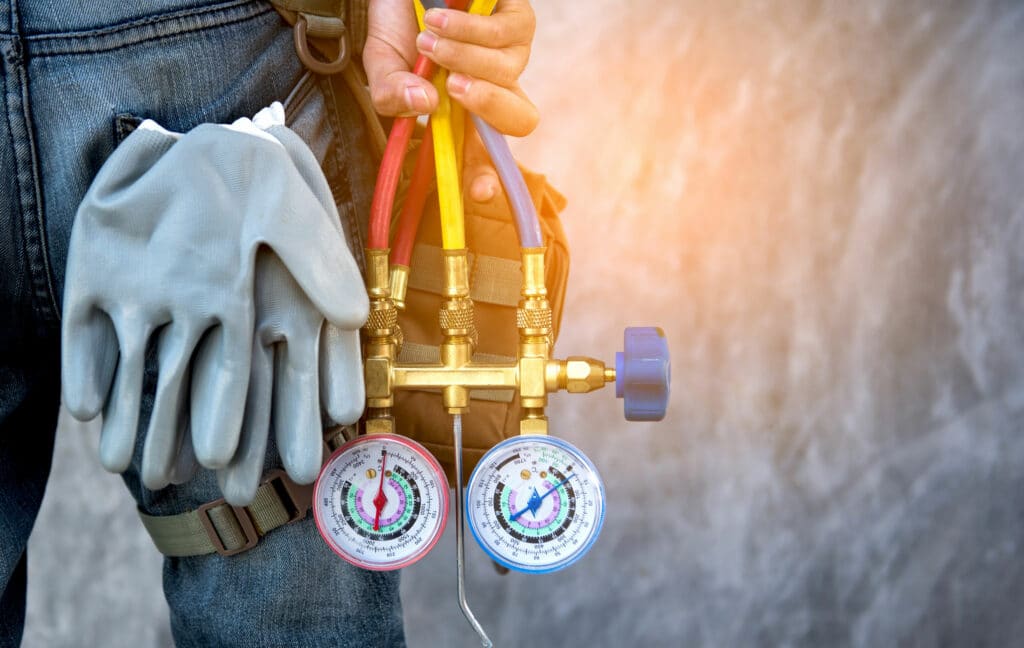A well-maintained HVAC system is vital to ensuring year-round comfort in your home. However, like any other mechanical system, HVAC systems can sometimes face issues affecting performance and reliability. As a homeowner, understanding the most common HVAC issues and how to prevent them can save you time, money, and frustration by avoiding costly repairs or untimely system breakdowns.
In this informative blog post, we will delve into the most common HVAC issues homeowners often encounter, such as clogged filters, thermostat malfunctions, and ductwork problems. By knowing these issues, you’ll be better prepared to recognize potential problems and take appropriate measures to prevent them from escalating. In addition, we’ll share some practical tips on maintaining your HVAC system to help ensure optimal performance and extend the lifespan of your equipment.
By familiarizing yourself with the common HVAC issues and their symptoms, you can better understand your system’s needs and take proactive measures to ensure its efficient, effective, and long-lasting operation. As professionals in the HVAC industry, our goal is to empower homeowners like you with valuable knowledge to make informed decisions about your home’s comfort systems, ultimately helping you create a comfortable and enjoyable living environment.
1. Clogged or Dirty Filters
One of the most common HVAC issues homeowners encounter is clogged or dirty filters. A clogged filter reduces airflow, forcing your HVAC system to work harder to maintain the desired temperature, which results in decreased efficiency and increased energy consumption. To prevent this problem, regularly check and change your air filters as needed – typically every one to three months, depending on the type of filter and your home’s specific needs.
2. Thermostat Malfunctions
Thermostat malfunctions can also lead to various HVAC issues, ranging from incorrect temperature readings to a complete system failure. To identify and prevent thermostat-related problems, regularly check your thermostat settings to ensure they align with your comfort needs. Replace your thermostat’s batteries as needed, and consider upgrading to a programmable or smart thermostat for improved energy efficiency and automated climate control.
3. Ductwork Problems
Ductwork problems, such as leaks, poor insulation, or obstructions, can greatly impact the efficiency of your HVAC system. Leaky ducts result in conditioned air escaping before reaching its intended destination, causing your system to work harder and consume more energy to maintain your desired temperature. Regularly inspect your ducts for any signs of damage, insulate exposed ducts, and ensure proper sealing to minimize energy waste and improve overall system performance.
4. Dirty or Damaged Evaporator and Condenser Coils
Dirty or damaged evaporator and condenser coils can reduce your system’s heat transfer capacity and efficiency. To prevent these issues, routinely clean your coils and inspect them for any signs of damage. If you notice significant damage or wear and tear, contact a professional technician to evaluate your system and recommend the appropriate course of action.
Additional HVAC Maintenance Tips
Besides addressing the common HVAC issues mentioned above, consider the following maintenance tips to keep your system operating smoothly.
1. Schedule Regular Preventive Maintenance
Regular preventive maintenance is essential to ensure the optimal performance and longevity of your HVAC system. This can include seasonal tune-ups and inspections by a professional technician, who can diagnose and address potential issues before they escalate. Preventive maintenance helps maintain system efficiency, reduce the likelihood of unexpected breakdowns, and extend the lifespan of your HVAC equipment.
2. Maintain Adequate Airflow Around Your Outdoor Unit
Keep the area around your outdoor unit clear of debris, plants, and other obstructions to ensure proper airflow and prevent overheating. Regularly check and clean the area around your outdoor unit, and trim back any plants or bushes that may be restricting airflow.
3. Balance Your Home’s Humidity Levels
Maintaining ideal indoor humidity levels can help reduce the strain on your HVAC system, improve indoor air quality, and enhance overall comfort. Consider investing in a whole-home humidifier or dehumidifier to help maintain balanced humidity levels in your home.
4. Seal Your Home’s Envelope
A well-sealed home can help prevent conditioned air from escaping and minimize the infiltration of outdoor pollutants, improving the overall efficiency and effectiveness of your HVAC system. Regularly inspect your home for any gaps or openings around windows, doors, and vents, and seal them with weatherstripping, caulk, or expandable foam.
Proactive Maintenance is Key to HVAC Efficiency
As a homeowner, understanding the most common HVAC issues and taking proactive measures to prevent them is essential to maintaining optimal comfort and efficiency in your home. Regularly inspect and maintain your HVAC system, invest in preventive maintenance, and address any issues promptly to ensure the longevity and effectiveness of your equipment. Remember, a little effort spent on routine HVAC maintenance can save you time and money in the long run.
For expert support and guidance in maintaining your HVAC system, contact NCS’ team of experienced technicians. We’re here to help you optimize your home’s comfort systems, ensuring year-round reliability and energy efficiency.


